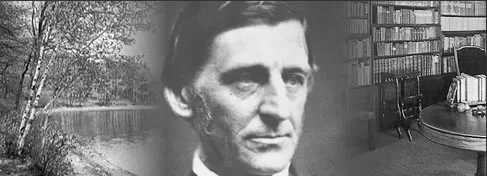THE CHARDON STREET CONVENTION.
IN the month of November, 1840, a Convention of Friends of Universal Reform assembled in the Chardon Street Chapel in Boston, in obedience to a call in the newspapers, signed by a few individuals, inviting all persons to a public discussion of the institutions of the Sabbath, the Church and the Ministry. The Convention organized itself by the choice of Edmund Quincy as Moderator, spent three days in the consideration of the Sabbath, and adjourned to a day in March of the following year, for the discussion of the second topic. In March, accordingly, a three-days' sessions was holden in the same place, on the subject of the Church, and a third meeting fixed for the following November, which was accordingly holden ; and the Convention debated, for three days again, the remaining subject of the Priesthood. This Convention never printed any report of its deliberations, nor pretended to arrive at any result by the expression of its sense in formal resolutions ; – the professed objects of those persons who felt the greatest interest in its meetings being simply the elucidation of truth through free discussion. The daily newspapers reported, at the time, brief sketches of the course of proceedings, and the remarks of the prineipal speakers. These meetings attracted a great deal of public attention, and were spoken of in different circles in every note of hope, of sympathy, of joy, of alarm, of abhorrence and of merriment. The composition of the assembly was rich and various. The singularity and latitude of the summons drew together, from all parts of New England and also from the Middle States, men of every shade of opinion from the straitest orthodoxy to the wildest heresy, and many persons whose church was a church of one member only. A great variety of dialect and of costume was noticed ; a great deal of confusion, eccentricity, and freak appeared, as well as of zeal and enthusiasm. If the assembly was disorderly, it was picturesque. Madmen, madwomen, men with beards, Dunkers, Muggletonians, Come-outers, Groaners, Agrarians, Seventh-day-Baptists, Quakers, Abolitionists, Calvinists, Unitarians and Philosophers, -all came successively to the top, and seized their moment, if not their hour, wherein to chide, or pray, or preach, or protest. The faces were a study. The most daring innovators and the champions -until – death of the old cause sat side by side. The still-living merit of the oldest New England families, glowing yet after several generations, encountered the founders of families, fresh merit, emerging, and expanding the brows to a new breadth, and lighting a clownish face with sacred fire. The assembly was characterized by the predominance of a certain plain, sylvan strength and earnestness, whilst many of the most intellectual and cultivated per-sons attended its councils. Dr. Channing, Ed-ward Taylor, Bronson Alcott, Mr. Garrison, Mr. May, Theodore Parker, II. C. Wright, Dr. Osgood, William Adams, Edward Palmer, Jones Very, Maria 11'. Chapman, and many other persons of a mystical or sectarian or philanthropic renown, were present, and some of them participant. And there was no want of female speakers ; Mrs. Little and Mrs. Lucy Sessions took a pleasing and memorable part in the debate, and that flea of Conventions, Mrs. Abigail Folsom, was but too ready with her interminable scroll. If there was not parliamentary order, there was life, and the assurance of that constitutional love for religion and religious liberty which, in all periods, characterizes the inhabitants of this part of America.
There was a great deal of wearisome speaking in each of those three-days' sessions, but relieved by signal passages of pure eloquence, by much vigor of thought, and especially by the exhibition of character, and by the victories of character. These men and women were in search of something better and more satisfying than a vote or a definition, and they found what they sought, or the pledge of it, in the attitude taken by individuals of their number of resistance to the insane routine of parliamentary usage ; in the lofty reliance on principles, and the prophetic dignity and transfiguration which accompanies, even amidst opposition and ridicule, a man whose mind is made up to obey the great inward Commander, and who does not anticipate his own action, but awaits confidently the new emergency for the new counsel. By no means the least value of this Convention, in our eye, was the scope it gave to the genius of Mr. Alcoa, and not its least instructive lesson was the gradual but sure ascendency of his spirit, in spite of the incredulity and derision with which he is at first received, and in spite, we might add, of his own failures. Moreover, although no decision was had, and no action taken on all the great points mooted in the discussion, yet the Convention brought together many remarkable persons, face to face, and gave occasion to memorable interviews and conversations, in the hall, in the lobbies, or around the doors.
